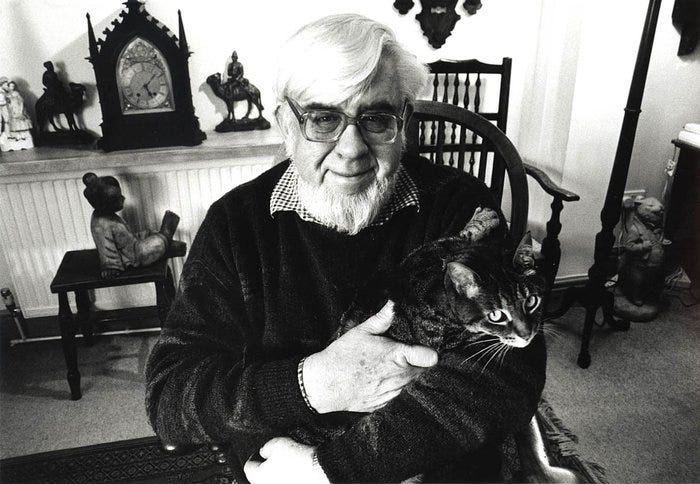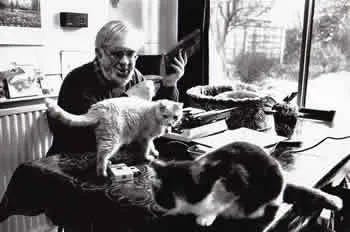This is a weird one – it might not be properly horror at all, more like dark fantasy. It is set in Southwold, Suffolk, UK (M. R. James’s old stomping grounds) and the chill of an East coast British beach town in November permeates it. A young woman inherits a decrepit house and falls prey to the same entity inhabiting it that fed off both her aunt and great-aunt for decades. Westall never specifies What, exactly, the Thing is; he only describes its desires and habits. It is mostly intangible and parasitic, feeding off of the negative emotions of lonely single women. It is something like a boggart or house-spirit, although never precisely defined as such, and as much pathetic as it is horrific.
“It fed on humankind, but not all humankind…. Happy families were worse, especially when the children were noisy. It only liked women, yet would have found a brisk Women’s Institute meeting an unbearable hell. It fed on women alone, women in despair. It crept subtly into their minds, when they slept or tossed and worried in the middle of the night, peeling back the protective shell of their minds that they didn’t even know they had…. Like all wise parasites it did not kill its hosts. Miss Forbes had lasted it forty years; Miss Forbes’s great-aunt had lasted nearer sixty. Now it was awake, and hungry.”
The protagonist’s savior appears in the form of The Boss, a feral tomcat who takes up residence with her. While she is insensible, he is aware of the Thing’s malign presence and takes active measures against it, warding off her loneliness.
“He gave a short and savage purr and leaped straight onto her knee, trampling her about with agonizing sharp claws, before finally settling in her lap…. He was big but painfully thin. His haunches felt like bone knives under his matted fur. The fat days must be in the summer, she thought sleepily, with full dustbins behind every hotel. What do they do in November?
He should have been an agony; but strangely he was a comfort. The gas stove had made the room deliciously warm. His purring filled her ears.”
(SPOILER) In the end she is rescued by a swarm of cats, The Boss’s friends, lovers, and relatives, who gang up to attack the Thing, essentially causing it to have an existential crisis. One is a mother cat who dumps a litter of kittens in the kitchen:
“The tom was not the worst. The she-cat lay curled on a pathetic heap of old rags and torn-up newspaper under the sink. And her hatred was utterly immovable. And there were five more small sharp stones now in the creature’s shoe. A mild squeaking came from beneath the she-cat’s protective legs. Little scraps of blind fur, writhing.”
With their lusty vitality the cats annihilate the Thing; it chooses to wink out of its already liminal being. “Thirty pairs of ravening cat eyes followed him. The creature knew, for the first time in its ancient existence, how it felt to be prey… It lost all desire to exist.”
As a great cat lover myself, I find the spectacle of a gang of thirty cats rousting a supernatural parasite to be deeply heartening, and cannot help but recall the time many years ago when, as a young boy, having terrified myself by reading a John Bellairs novel (The Figure in the Shadows), cuddled in the dark with my family’s huge orange tomcat, knowing that his love and demonstrated ferocity would protect me against any and all intangible horrors.
I can’t find the full text on the internet, but it’s widely anthologized. My copy is from here: https://www.amazon.com/dp/0374417016






Nicely done
This sounds pretty cool. Will check it out.
Hints of Lovecraft in there. Especially one of my favorites: The Shunned House. But no cats in that one.